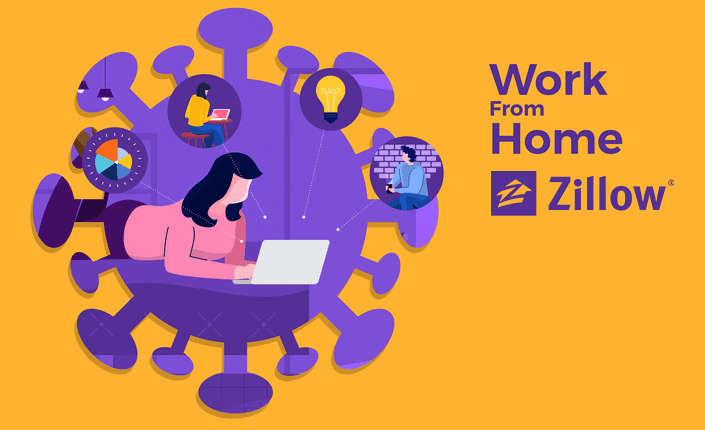
A majority of companies opting to allow their employees to work from home to keep their staff safe while staying in business. Whether they plan to end remote work when the pandemic curve begins to flatten, or if they will keep up the choice to work from home, Zillow has announced that its employees will continue remote work until the end of 2020, at the earliest.
Zillow CEO Rich Barton tweeted:
Today we let our team know they have flexibility to work from home (or anywhere) through the end of 2020. My personal opinions about WFH have been turned upside down over the past 2 months. I expect this will have a lasting influence on the future of work ... and home. Stay safe.
Aiding in remote work, Zillow had launched a new onboarding program to virtually hire new staff during the pandemic. A spokesperson for the company explained that Zillow is working on reopening plans though the process will be slow-moving.
“This situation has dramatically changed how we envision our future of work and we expect this experience will influence our decisions going forward.”
The Seattle-based property marketplace has seen the benefits of remote work. As long as companies can provide the right technology to support the same level of technology as they would have at the office, employees can spend less time and money on commuting, and companies can save money on office expenses.
Will other companies continue to follow in Zillow’s footsteps, keeping their employees home until the end of the year? Some US states are looking to open before the end of 2020, whether medical officials suggest it or not, allowing companies to go back to business as usual.
The pandemic has proven that remote work is a legitimate business strategy, offering employees more comfort, mobility, and saving time and money for both company and staff. Who will keep working from home a viable option after the metaphorical pandemic dust settles? Are the benefits the same without a global crisis looming over companies’ heads?